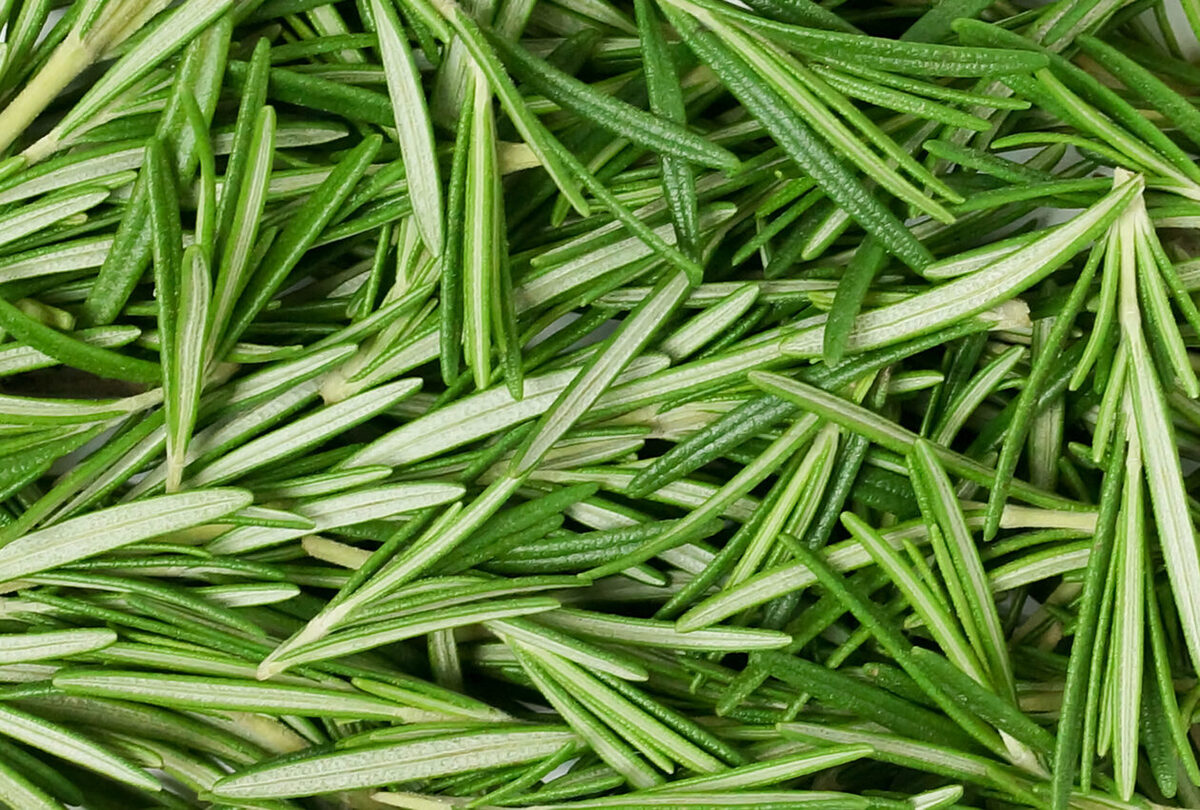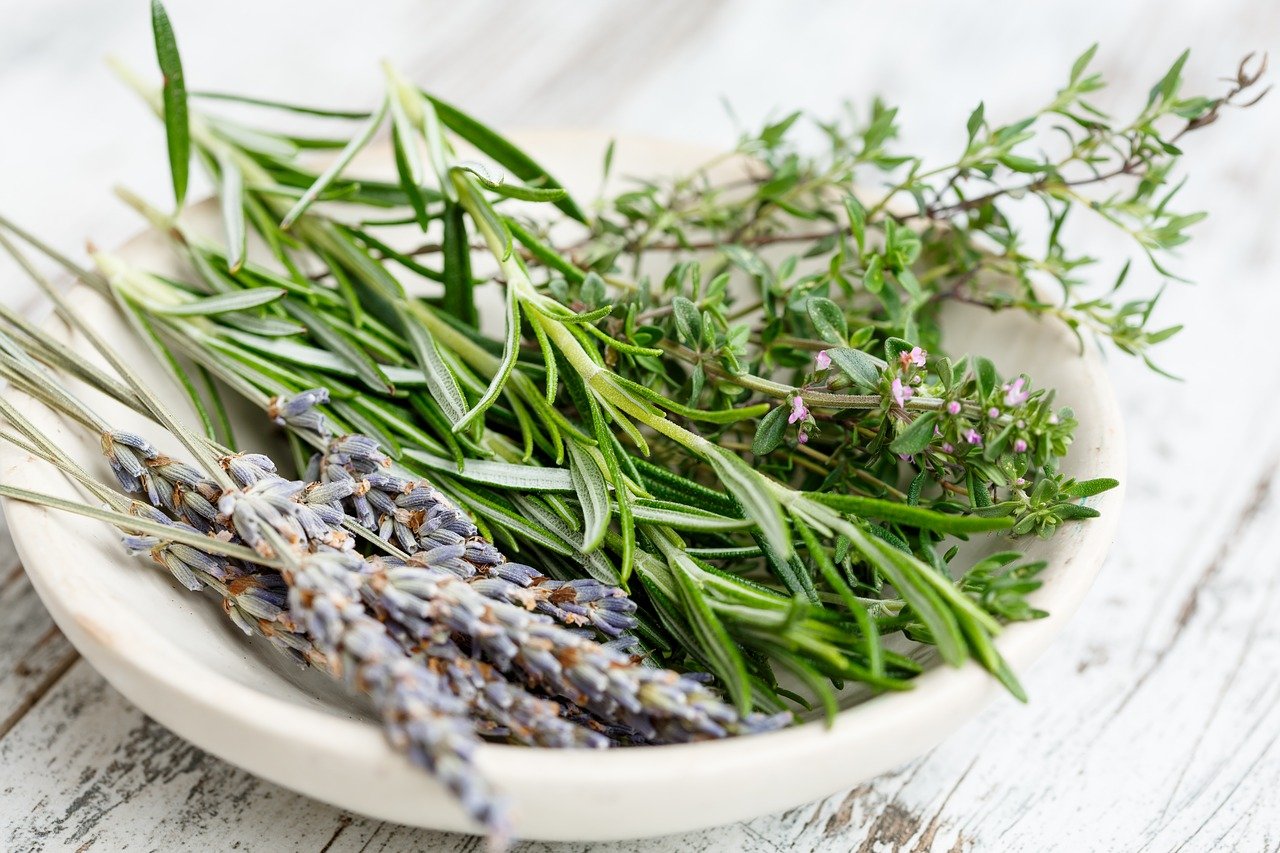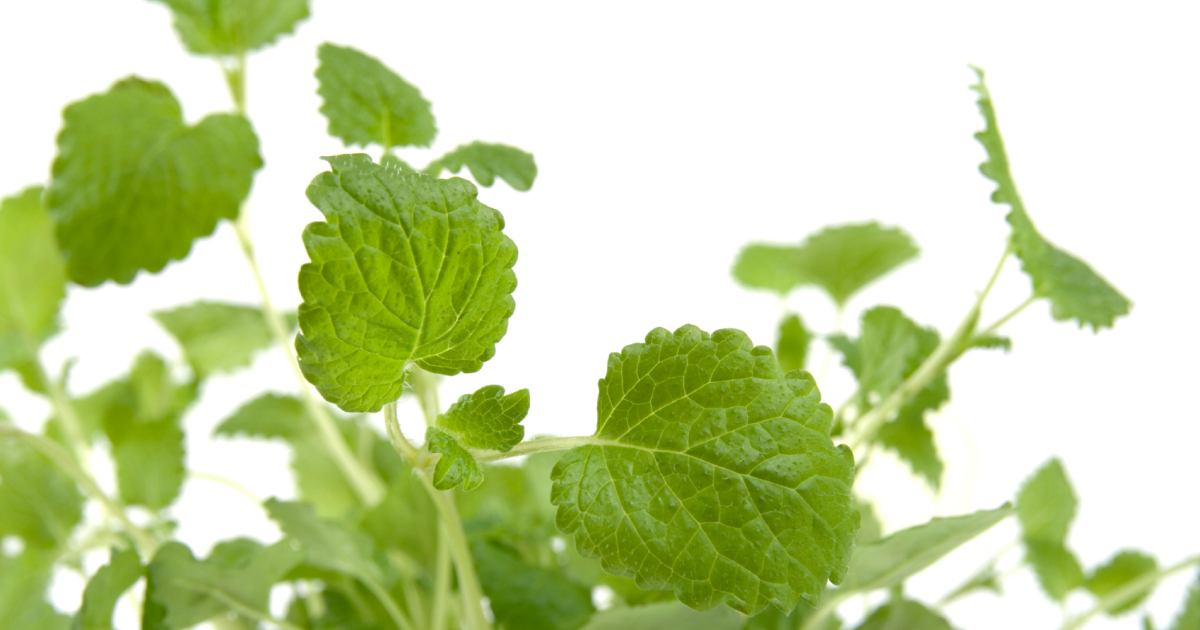Home>Types of Gardening>Edible Gardening>What Is Rosemary Leaves Good For


Edible Gardening
What Is Rosemary Leaves Good For
Modified: February 1, 2024
Discover the benefits of rosemary leaves in your edible gardening endeavors. Learn how this versatile herb can enhance flavor, boost health, and elevate your culinary creations.
(Many of the links in this article redirect to a specific reviewed product. Your purchase of these products through affiliate links helps to generate commission for Chicagolandgardening.com, at no extra cost. Learn more)
Table of Contents
Benefits of Rosemary Leaves
Rosemary is not just a fragrant herb that adds flavor to your dishes, it also offers numerous health benefits. Here are some of the key benefits of rosemary leaves:
- Boosts Cognitive Function: Rosemary is known for its ability to enhance memory and focus. The aroma of rosemary has been found to stimulate the brain and improve cognitive performance. It can help improve concentration and mental clarity, making it a great herb to use when studying or working on demanding tasks.
- Anti-inflammatory Properties: Rosemary contains compounds that possess anti-inflammatory properties. These compounds can help reduce inflammation in the body, which is often the root cause of many chronic diseases and conditions. Incorporating rosemary into your diet can help alleviate symptoms of arthritis, asthma, and other inflammatory conditions.
- Rich in Antioxidants: Rosemary leaves are packed with antioxidants, which help protect the body from oxidative stress caused by free radicals. This can help prevent cellular damage and reduce the risk of chronic diseases such as heart disease, cancer, and neurodegenerative disorders.
- Improves Digestion: Rosemary has been traditionally used to aid digestion. It helps stimulate the production of digestive enzymes, which aids in the breakdown of food and facilitates nutrient absorption. Adding rosemary to your meals can help alleviate digestive discomfort and promote a healthy gut.
- Supports Immune Function: The immune-boosting properties of rosemary can help strengthen your immune system and protect against illnesses. Rosemary contains compounds that have antimicrobial and antibacterial properties, helping to fight off pathogens and infections.
These are just a few of the many benefits that rosemary leaves offer. Incorporating rosemary into your diet and lifestyle can contribute to overall health and well-being.
Culinary Uses of Rosemary Leaves
Rosemary leaves are not only renowned for their health benefits but are also valued for their culinary uses. The aromatic and earthy flavor of rosemary adds a delightful twist to a variety of dishes. Here are some popular culinary uses of rosemary leaves:
- Seasoning Roast Meats: Rosemary pairs excellently with roasted meats, such as lamb, chicken, and beef. Sprinkle chopped rosemary leaves over the meat before cooking or use whole sprigs to infuse flavor during the roasting process. The fragrance and taste of rosemary will complement and enhance the natural flavors of the meat.
- Flavorful Marinades: Create delicious marinades by combining rosemary leaves with other herbs, garlic, lemon juice, and olive oil. Marinate your choice of protein, such as chicken, tofu, or vegetables, to infuse them with the delightful aroma and taste of rosemary. Grill, bake, or sauté for a scrumptious meal.
- Herbed Breads and Focaccia: Add a savory touch to homemade bread by incorporating finely chopped rosemary leaves into the dough. The aroma of rosemary will fill your kitchen as the bread bakes, and the flavor will permeate each bite. Rosemary is particularly delightful when used in focaccia bread, giving it a unique and delicious twist.
- Infused Oils and Vinegars: Create your own infused oils and vinegars by steeping rosemary leaves in olive oil or balsamic vinegar. This process allows the flavors and aromas of rosemary to infuse into the liquids, providing a versatile and flavorful addition to your dishes. Use the infused oil for sautéing, drizzle it over salads, or make a homemade vinaigrette.
- Flavorful Soups and Stews: Add depth and complexity to soups and stews by tossing a few sprigs of rosemary into the pot while cooking. The heat will release the aromatic oils, infusing the dish with a warm and comforting flavor. Remember to remove the rosemary sprigs before serving the soup or stew.
These are just a few examples of how rosemary leaves can elevate the taste of your culinary creations. Experiment with different recipes and discover the versatility and deliciousness of this wonderful herb.
Medicinal Uses of Rosemary Leaves
Rosemary leaves have been used for centuries for their medicinal properties. The active compounds found in rosemary offer a range of health benefits. Here are some of the medicinal uses of rosemary leaves:
- Digestive Aid: Rosemary leaves have been traditionally used to alleviate digestive issues such as indigestion, bloating, and stomach cramps. The essential oils found in rosemary, such as cineole, help stimulate digestion and improve overall gut health.
- Respiratory Support: Rosemary leaves are known for their respiratory benefits. The aromatic compounds found in rosemary can help soothe coughs, congestion, and respiratory infections. Inhalation of rosemary steam or using rosemary-infused oils can provide relief from respiratory discomfort.
- Anti-inflammatory Properties: The anti-inflammatory compounds in rosemary leaves, including rosmarinic acid, have been shown to have anti-inflammatory effects. Rosemary can help reduce inflammation in the body, which may help alleviate symptoms of arthritis and other inflammatory conditions.
- Improved Circulation: Rosemary has properties that help improve blood circulation. It can stimulate blood flow and help dilate blood vessels, which may be beneficial for conditions related to poor circulation, such as cold hands and feet or varicose veins.
- Stress Relief: The aroma of rosemary has calming and stress-reducing effects. Inhaling the scent of rosemary leaves or using rosemary-infused essential oils can help promote relaxation, reduce anxiety, and improve overall mood.
In addition to these uses, rosemary leaves have also been studied for their potential effects on memory and cognitive function. It is believed that certain compounds in rosemary may have neuroprotective properties, supporting brain health and potentially enhancing memory and concentration.
It is important to note that while rosemary leaves may offer these potential benefits, it is always advisable to consult with a healthcare professional before using any herbal remedies, especially if you have any existing medical conditions or are taking medications.
Skin and Hair Care with Rosemary Leaves
Rosemary leaves are not only beneficial for culinary and medicinal purposes but also for skin and hair care. The natural properties found in rosemary can help improve the health and appearance of your skin and hair. Here are some ways to incorporate rosemary leaves into your beauty routine:
- Healthy Scalp and Hair: Rosemary has been used for centuries to promote hair growth and improve scalp health. Boil rosemary leaves in water and use the infused liquid as a final hair rinse after shampooing. This can help stimulate hair follicles, strengthen the hair shaft, and prevent scalp issues such as dandruff and an itchy scalp.
- Natural Toner: Rosemary leaves can be used to create a natural toner for the skin. Steep rosemary leaves in hot water and allow the mixture to cool. Strain out the leaves and use the liquid as a toner to help balance the skin’s pH, tighten pores, and reduce inflammation. Apply it to your face using a cotton pad after cleansing.
- Acne Treatment: The anti-inflammatory and antibacterial properties of rosemary leaves make it a great natural remedy for acne-prone skin. Create a homemade face mask by blending rosemary leaves with a carrier ingredient like honey or yogurt. Apply this mask to your face and leave it on for 15-20 minutes before rinsing off. This can help soothe inflamed skin, reduce breakouts, and promote a clearer complexion.
- Anti-Aging Effects: Rosemary is rich in antioxidants, which can help fight free radicals and protect the skin from premature aging. You can create a DIY anti-aging serum by infusing rosemary leaves in a carrier oil like jojoba or almond oil. Apply a few drops of this serum to your face daily to help reduce the appearance of fine lines, wrinkles, and age spots.
- Relaxing Bath Soak: Adding rosemary leaves to your bathwater can provide a soothing and aromatic experience. The scent of rosemary can help relax the mind and body while the natural properties of the herb nourish the skin. Simply tie a handful of rosemary leaves in a muslin cloth and let it steep in warm bath water for a rejuvenating soak.
Whether you use rosemary leaves in your hair care routine, skincare regimen, or bath rituals, it can be a beneficial addition to your natural beauty routine, promoting healthier hair and revitalized skin.
Aromatherapy Benefits of Rosemary Leaves
Rosemary leaves are not only sought after for their culinary and medicinal uses but are also highly esteemed in the world of aromatherapy. The invigorating and refreshing scent of rosemary essential oil can provide numerous benefits to the mind and body. Here are some of the aromatherapy benefits of rosemary leaves:
- Mental Clarity and Focus: Inhaling the aroma of rosemary leaves can help improve mental alertness, enhance concentration, and stimulate cognitive function. It can be particularly beneficial during times of fatigue or when you need a mental boost.
- Mood Enhancement: The uplifting and energizing scent of rosemary leaves can help improve mood and relieve feelings of stress and anxiety. It can provide a sense of comfort, balance, and overall well-being.
- Relief from Headaches: Rosemary has been used for centuries to alleviate headaches and migraines. Inhaling the aroma of rosemary leaves or applying diluted rosemary essential oil to the temples and forehead can help ease tension and reduce headache symptoms.
- Respiratory Support: Inhalation of rosemary leaves’ aroma can help provide relief from respiratory issues such as congestion and sinusitis. The antimicrobial properties of rosemary can also help clear the airways and promote easier breathing.
- Stress Reduction: The calming fragrance of rosemary leaves can help reduce stress levels and promote relaxation. Aromatherapy with rosemary oil can help lower cortisol levels, which is a hormone associated with stress.
To enjoy the aromatherapy benefits of rosemary leaves, you can use rosemary essential oil in a diffuser, create homemade scented candles or potpourri, or incorporate rosemary leaves into your bath rituals. You can also inhale the scent directly from the leaves by crushing them gently between your fingers or palms.
When using essential oils, it is important to dilute them properly and follow safety guidelines. If you are new to aromatherapy or have any specific health concerns, it is best to consult with a qualified aromatherapist.
How to Grow and Harvest Rosemary Leaves
Growing your own rosemary plant can be a rewarding experience, as it ensures a fresh and abundant supply of rosemary leaves for culinary, medicinal, and cosmetic uses. Here are some steps to help you grow and harvest rosemary leaves:
- Choose the Right Location: Rosemary prefers full sun and well-draining soil. Select a location in your garden or a container with at least 6-8 hours of direct sunlight per day. If growing indoors, place the plant near a south-facing window to ensure it receives enough light.
- Prepare the Soil: Rosemary thrives in well-draining soil with a pH of 6 to 7. Amend the soil with organic matter, such as compost, to improve drainage and fertility. Ensure the soil is loose and free of debris before planting.
- Planting: If growing from seeds, sow them in moist soil, covering lightly with a thin layer of soil. Rosemary can also be propagated from stem cuttings. Dip the cut ends of healthy rosemary stems in rooting hormone, and plant them in well-draining soil or a pot filled with a mixture of perlite and peat moss.
- Watering: Rosemary prefers slightly dry conditions and does not tolerate overwatering. Allow the soil to dry out between waterings, and water deeply but infrequently. Avoid getting the foliage wet as this can lead to fungal issues.
- Pruning: Regular pruning helps promote healthy growth and bushier plants. Trim the top 1/3 of the plant to encourage branching and prevent legginess. Harvesting the leaves regularly also serves as a form of pruning.
- Harvesting: Rosemary leaves can be harvested once the plant is established, typically after about 3-4 months. Pinch or snip off individual leaves or small sprigs as needed. Avoid removing more than one-third of the plant’s growth at a time to ensure its continued health.
- Drying and Storing: To dry rosemary leaves, hang the harvested sprigs upside down in a cool and well-ventilated area. Once fully dried, remove the leaves from the stems and store them in an airtight container. Keep the container in a cool, dark place to preserve the flavor and aroma of the dried leaves.
With proper care and attention, your rosemary plant will continue to provide you with an abundant supply of fresh and aromatic leaves for all your needs.
Potential Side Effects of Rosemary Leaves
While rosemary leaves offer numerous benefits, it is important to be aware of potential side effects that may occur in some individuals. Here are some possible side effects of using rosemary leaves:
- Skin Irritation: Direct contact with rosemary leaves, especially in individuals with sensitive skin, can cause skin irritation or allergic reactions. It is advisable to perform a patch test before using rosemary topically. If any irritation occurs, discontinue use.
- Interaction with Medications: Rosemary may interact with certain medications, such as blood thinners, anticoagulants, and diuretics. It is crucial to consult with a healthcare professional if you are taking any medications to avoid potential interactions or complications.
- Pregnancy Concerns: Pregnant women are advised to avoid excessive consumption or use of rosemary, as it may stimulate the uterus and potentially lead to miscarriage. It is best to consult with a healthcare professional before using rosemary during pregnancy.
- Seizure Risk: Some studies suggest that high doses of rosemary may increase the risk of seizures in individuals with a history of epilepsy or seizure disorders. If you have a seizure disorder, it is recommended to avoid consuming large amounts of rosemary or using concentrated rosemary supplements.
- Stomach Upset: In some individuals, consuming excessive amounts of rosemary leaves or rosemary-infused products may cause stomach upset, including nausea, vomiting, and diarrhea. It is advisable to consume rosemary in moderation and monitor your body’s response.
While these side effects are rare, it is important to exercise caution and listen to your body. If you have any concerns or experience any adverse effects after using rosemary leaves, it is best to discontinue use and consult with a healthcare professional.
Overall, rosemary leaves are considered safe for most individuals when consumed in culinary amounts. However, to ensure your safety and well-being, it is always recommended to consult with a healthcare professional before using rosemary leaves for medicinal purposes or if you have any underlying health conditions or concerns.










